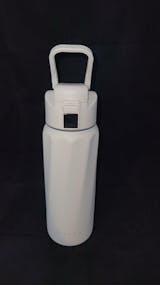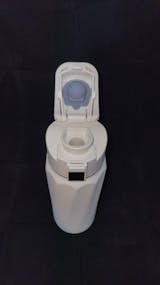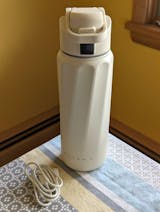
How Body Composition Affects Hydration Needs
Hydration plays a vital role in nearly every bodily function—from regulating temperature to transporting nutrients and maintaining energy levels. But did you know that how much water your body needs isn’t the same for everyone? One key factor that influences your hydration requirements is your body composition—the ratio of muscle, fat, bone, and water.
Understanding how your body composition affects hydration can help you stay energized, perform better, and maintain optimal health. Let’s explore how your body's composition influences your water needs.
Understanding body composition

Body composition refers to the percentages of fat, muscle, bone, and water that make up your total body weight. Unlike BMI (Body Mass Index), which only considers height and weight, body composition gives a clearer picture of your physical health.
Here are the main components:
- Muscle mass: Lean tissue responsible for strength, movement, and metabolism.
- Fat mass: Stored energy and insulation for the body.
- Bone density: The structural framework that supports your muscles and organs.
- Body water: The fluid component that fuels all physiological processes.
To measure body composition, experts often use methods like bioelectrical impedance analysis, DEXA scans, or skinfold calipers. These tools help estimate how much of your body weight is muscle versus fat—key information for determining hydration needs.
Water and muscle: why more muscle means higher hydration needs
Muscles are highly water-dense tissues—composed of about 70–75% water. This means that individuals with more muscle mass naturally hold and require more water.
When you work out or engage in physically demanding activities, your muscles lose water through sweat and energy metabolism. Staying hydrated ensures that your muscles function efficiently, supports endurance, and helps prevent cramps and fatigue.
That’s why athletes and people with high lean body mass often nee
d more fluids than sedentary individuals, even if they weigh the same.
Water and fat: lower water content in fat tissue

In contrast, fat tissue contains much less water—around 10–20%. This means that individuals with higher body fat percentages have a lower overall body water content.
It’s a common misconception that heavier individuals automatically need more water. In reality, the type of weight—muscle versus fat—matters more than total body weight when determining hydration requirements. A muscular 180-pound athlete may need significantly more water than a sedentary 180-pound person with higher body fat.
Body size, gender, and age differences
Several factors linked to body composition also influence hydration needs:
- Body size: Larger bodies, particularly those with greater lean mass, require more water to maintain balance and regulate temperature.
- Gender: Men typically have a higher percentage of muscle mass and therefore more total body water than women, which can increase their hydration needs.
- Age: As we age, muscle mass naturally declines while body fat often increases, leading to lower total body water. This is one reason why older adults are more prone to dehydration and should pay closer attention to fluid intake.
Activity levels and hydration

Your activity level also plays a major role. During exercise, you lose water and electrolytes through sweat. People with higher muscle mass not only sweat more but also require additional water to maintain muscle hydration and performance.
Hydrating before, during, and after exercise helps maintain strength, focus, and endurance. For athletes, replacing lost fluids is just as important as nutrition.
Practical tips for adjusting hydration based on body composition
Here are some ways to personalize your hydration strategy:
- Start with general guidelines: The common recommendation is around 2–3 liters of water per day, or about half your body weight (in pounds) in ounces.
- Adjust for your composition:
-
- More muscle = higher hydration needs.
- Higher body fat = relatively lower water requirements, but still prioritize consistent intake.
- Monitor your hydration:
-
- Check your urine color—light yellow indicates good hydration.
- Weigh yourself before and after workouts to gauge fluid loss.
- Use a water reminder water bottle or hydration tracking apps to stay consistent.
- Don’t forget electrolytes: When sweating heavily, replace lost sodium, potassium, and magnesium through electrolyte drinks or natural sources like coconut water.
FAQs
How can I calculate my body`s hydration needs?
Start with 30–35 mL of water per kilogram of body weight, then adjust for activity and environment.
Do overweight individuals need more water than lean individuals?
Not necessarily—hydration depends more on lean muscle mass than total body weight.
Does building muscle increase my hydration needs?
Yes. As you gain muscle, your total body water increases, meaning your fluid intake should rise accordingly.
Conclusion
Hydration isn’t one-size-fits-all. Your body composition—especially your balance of muscle and fat—directly affects how much water your body needs to function optimally.
By understanding your unique body makeup and adjusting your fluid intake accordingly, you can support better performance, improved focus, and overall well-being. Remember, hydration is more than just drinking water—it’s about maintaining the right balance for your body’s specific needs.
















